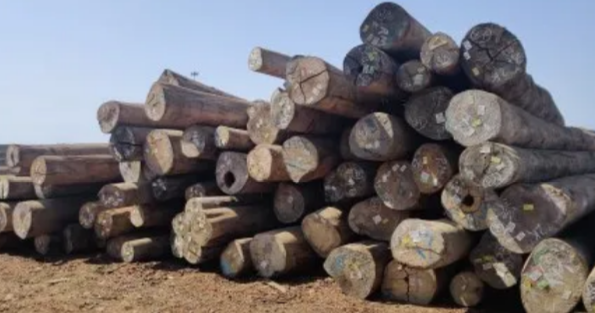
The European Union¡¯s (EU) proposal to classify several timber
species commonly found in Malaysia as unsustainable under the
Convention on International Trade in Endangered Species of Wild
Fauna and Flora (CITES) could have severe repercussions on the
country¡¯s economy.
Sarawak Timber Association chairman Dato Henry Lau said this
move could potentially restrict access to both domestic and
international markets.
He said these timber species, including key genera such as
Meranti and Selangan Batu, make up a significant portion of
Malaysia¡¯s forest cover and are vital to the country¡¯s timber
trade.
¡°Sarawak has made significant strides in forest conservation
through initiatives such as increasing the establishment of
Totally Protected Areas (TPAs), enforcing strict certification
policies, and implementing enrichment planting programmes.
¡°These efforts demonstrate our commitment to sustainable forest
management (SFM) practices, which are aimed at both conserving
biodiversity and ensuring that our timber resources are
harvested responsibly,¡± he said at the association¡¯s annual
general meeting here today.
Lau criticised the EU¡¯s justification for the proposal, stating
that listing Anthoshorea, Richetia, Rubroshorea, and Shorea
under CITES based on declining production levels or perceived
threats was ¡°irrational and a foolish excuse.¡±
He warned that if these species are listed under CITES, it would
have severe consequences for Malaysia¡¯s timber industry,
threatening its survival and putting the livelihoods of many
workers at risk.
¡°This including workers in the consumer countries, not to
mention that this will invariably put the listed trees as of no
value and therefore risk of being replaced¡±, he added.
Despite these concerns, Lau reaffirmed STA¡¯s commitment to
advocating for a sustainable and thriving timber industry.
He highlighted the importance of conferences that bring together
industry experts, leaders, and stakeholders from around the
world to exchange ideas, research, and best practices.
¡°One key takeaway is that forests must provide economic value to
remain protected. If forests cannot offer long-term economic
returns, they risk being converted for more immediate financial
gain,¡± added.
Previously, Timber Exporters¡¯ Association of Malaysia (TEAM)
treasurer Wong Kar Wai echoed similar concerns, stating that the
proposed classification by the EU and the United States could
lead to the cancellation of Malaysian timber exports to these
regions.
He noted that in addition to facing impending tariffs, the US
and EU are pushing to classify key Southeast Asian timber
species, including Meranti (Shorea) and Apitong (Keruing), under
CITES, despite them being sustainably harvested and processed.
¡°Keruing is a specialised timber primarily used for floorboards,
with the US being its main market. The US military is a major
buyer, using Keruing for truck and tank flooring due to its
durability and strength,¡± he explained in an interview with
theSun.
However, he added that the US is shifting towards using local
timber, particularly Red Oak. This shift has led to discussions
about placing Keruing under CITES, which could further restrict
its trade and impact Malaysian exporters.
If approved, strict trade restrictions would be imposed on
these species, significantly affecting the domestic timber
industry. A vote on Shorea¡¯s inclusion is scheduled for the
CITES CoP20 Conference in Uzbekistan from Nov 24 to Dec 5 this
year.
Source:
theborneopost.com